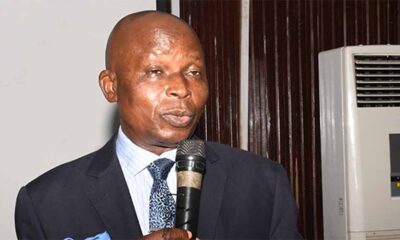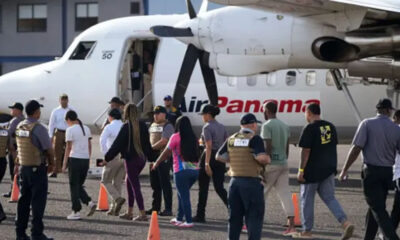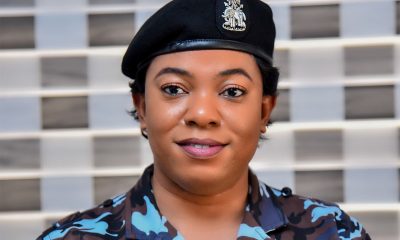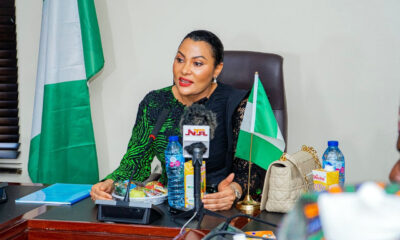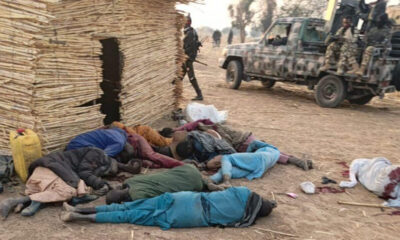News
Okonjo-Iweala will drive global trade, says World Bank

The international financial architecture is ‘skewed in favour of rich and creditor countries’, the World Bank has said.
President of the bank, David Malpass exposed the partial state of the architecture at the close of the World Bank/IMF Spring Meetings 2021 Development Committee meeting, in Washington D.C. yesterday.
He said the disturbing state of the global financial system was exposed last year by the COVID-19 pandemic, which made challenges and staggering needs of every country’s economy even clearer.
Malpass said, “One major challenge is that the current international financial architecture is heavily skewed in favor of the rich and creditor countries. It is ever important that all voices are heard. I urge all of us to consider how we can restore growth in developing countries and help reverse the growing inequality, in terms of access to vaccinations, unsustainable debt, and adverse climate impacts.”
According to him, the bank is developing a better line of sight forward, and the collective efforts to poverty, climate change, and inequality will be the defining choices of this age.
“Now is the time to move urgently toward opportunities and solutions that achieve sustainable and broad-based economic growth without harming climate, degrading the environment, or leaving hundreds of millions of families in poverty,” Malpass said.
He also expressed the hope that World Trade Organisation (WTO) will facilitate effective global trade deals under the watch of Dr. Ngozi Okonjo-Iweala The is its Director-General,
He said: “I would also like to acknowledge our former World Bank colleague, now Director-General of the WTO, Mrs. Ngozi Okonjo-Iweala, who is joining us today. It is a point of pride that we have IMF Managing Director Kristalina Georgieva and Ngozi – two good friends and women who have previously been members of the World Bank team – leading our sister institutions and playing critical global roles in the development agenda today.”
“I had the privilege of hearing strong presentations by both these women leaders at the IMFC meeting. With Ngozi as a champion, we’re looking forward to having a strong focus on trade facilitation and development in future Development Committee meetings.”
Malpass said the Development Committee plays an essential and unique role in the international cooperation architecture.
“I have said this before – it is the only forum in which the governments of developed countries and developing countries, creditor countries and borrower countries, come together with a primary focus development and resource needs for developing countries.”
He said the World Bank goal on COVID-19 was to act quickly and to help as many countries as possible to respond to the pandemic.
“These actions include new COVID-related emergency health programs in 112 countries, vaccination operations that we expect will reach $4 billion of commitments available in 50 countries by mid-year, and a quick doubling of our trade and working capital finance to help fill the banking vacuum that hit private sectors. In 2020, the World Bank achieved a record 65 per cent growth in commitments, Group-wide commitments topped $100 billion for the first time, and we expect this elevated level of delivery to continue in 2021.”
He said the International Finance Corporation (IFC) and the Multilateral Investment Guarantee Agency (MIGA) maintained strong levels of investment in 2020, filling critical gaps in private sector financing, including short-term liquidity and trade, caused by the global recession.
Malpass said the International Centre for Settlement of Investment Disputes has continued to ensure that international disputes under investment contracts, laws, and treaties are resolved effectively and impartially, which is key to mitigating risks that may otherwise deter much needed private investment for economic recovery.
On debt, he said he strongly welcome the G20’s decision on April 7 to extend the DSSI to end-2021.
He said: “We are working closely with the IMF to support the implementation of the G20 Common Framework, as detailed in this joint paper. I welcome the clear statement in the G20’s communique that ‘the need for debt treatment, and the restructuring envelope that is required, will be based on an IMF/World Bank Debt Sustainability Analysis’ as an input to the creditor committee deliberations.
“In both these debt efforts, greater transparency and participation are important elements. I urge all of you to disclose the terms of your financing contracts, including re-schedulings, and to support the World Bank’s efforts to reconcile borrower’s debt data more fully with that of creditors”.
On vaccines, he said the World Bank have been pleased to see the rapid development of safe vaccines and their deployment in some poor countries, but we are deeply concerned about the limited access around the world.
“The IFC is making investments to help manufacturers expand vaccine production, as well as increase the availability of medical equipment and critical supplies. We’re working closely with the international community, including WHO, Gavi, and UNICEF, and have conducted over 140 vaccine readiness assessments and we are working with countries to address challenges from cold chain and logistics to community outreach.”
“We’re also supporting countries to access vaccines both through COVAX and directly from manufacturers. We remain focused on the goal of vaccinating as broad a group of countries as possible.
“Once again, transparency is key. To accelerate progress, the world needs much more information sharing regarding export and supply commitments and requirements.
“Finally, to recover from COVID-19, we will need integrated, long-run strategies that emphasize green, resilient, and inclusive development (GRID). This must be aligned with the need for policies that help countries increase literacy, reduce stunting and malnutrition, ensure clean water and energy access, and provide better healthcare.
“We must help countries improve their readiness for future pandemics. We need to help them accelerate the development and adoption of digital technologies. We need to work to improve and expand local supply chains and strengthen biodiversity and ecosystems. In our efforts to rebuild, we can generate a recovery that ensures a broad and lasting rise in prosperity, especially for the poorest and most vulnerable.”
News
Nigeria Wins $6.2 Million Arbitration Against UK Tech Firm

Nigeria Wins $6.2 Million Arbitration Against UK Tech Firm
Nigeria has scored a landmark legal victory, securing $6.2 million in an international arbitration against UK-based technology firm European Dynamics UK Ltd over a disputed national electronic government procurement (e-GP) contract. The ruling reinforces Nigeria’s commitment to performance-based government contracts and protecting public resources.
The arbitration decision, delivered on February 3, 2026, by sole arbitrator Funmi Roberts at the International Centre for Arbitration and Mediation, dismissed all claims by the UK contractor. The award is final and not subject to appeal, according to the Attorney-General of the Federation, Lateef Fagbemi, SAN.
The dispute originated from a Bureau of Public Procurement (BPP) contract to design, develop, and implement a national e-procurement platform, supported by the World Bank to enhance transparency and efficiency in federal procurement.
READ ALSO:
- US Adds 19 More Nigerians to ‘Worst of the Worst’ Deportation List
- Gunmen Storm Gbugbu in Kwara, Residents Flee as Panic Spreads
- FG to Launch Monthly Revenue Transparency Dashboards to Improve Fiscal Accountability
European Dynamics had claimed over $6.2 million, including:
- $2.4 million for alleged milestone completions
- $3 million in general damages
- $800,000 in settlement costs
However, the tribunal ruled the claims lacked merit, citing deficiencies during User Acceptance Testing (UAT) such as functional gaps and performance errors, which the contractor was required to fix at no additional cost.
The BPP insisted payments must be strictly tied to verified deliverables, rejecting earlier efforts at an out-of-court settlement. The tribunal upheld this stance, emphasizing that software development and customization contracts are performance-based and must meet technical and statutory standards before payments are made.
Nigeria’s legal team, led by Johnson & Wilner LLP with Basil Udotai heading the arbitration, achieved what the BPP Director-General, Adebowale Adedokun, described as a historic victory. European Dynamics had previously won arbitration cases in other African countries but lost against Nigeria, signaling a shift in how government procurement disputes are handled.
Attorney-General Fagbemi stated that this ruling sends a clear message that Nigeria will no longer be taken for granted, demonstrating strengthened legal and technical capacity in managing complex international contracts. Experts suggest the outcome will influence future e-procurement reforms to ensure compliance, accountability, and efficient management of public contracts.
Nigeria Wins $6.2 Million Arbitration Against UK Tech Firm
News
Yoruba Muslim Group Dismisses Viral Ramadan Date Claim, Reaffirms Sultan of Sokoto’s Authority
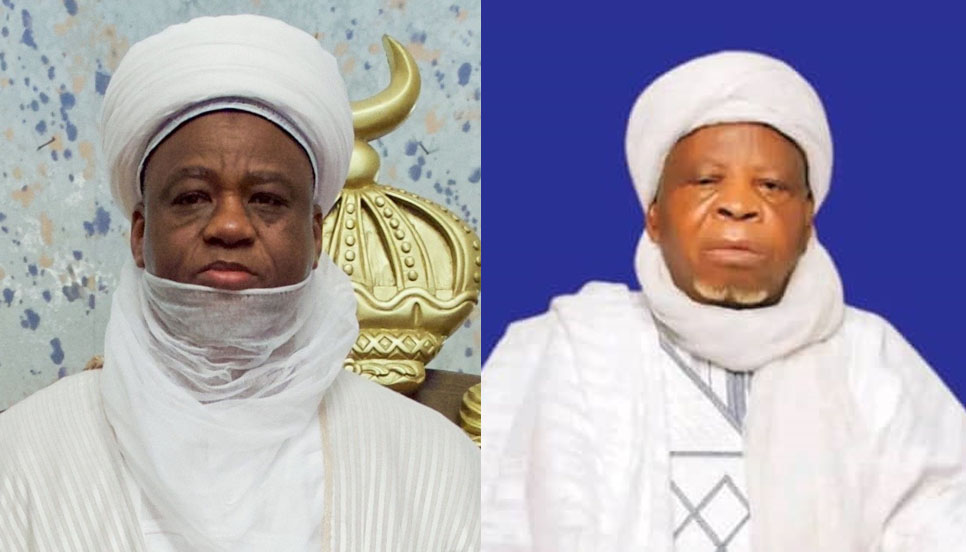
Yoruba Muslim Group Dismisses Viral Ramadan Date Claim, Reaffirms Sultan of Sokoto’s Authority
A Yoruba Muslim group, Concerned Indigenous Yoruba Muslims, has dismissed as false, misleading, and divisive a viral social media report alleging that the Chief Imam of Ibadanland and the League of Imams in Yorubaland rejected the authority of the Sultan of Sokoto in determining the commencement of Ramadan in South-West Nigeria.
The report, which circulated online ahead of Ramadan 1447AH, claimed that Yoruba Muslim leaders had resolved to disengage from the Sultan’s traditional role of announcing moon sighting for the fasting period and instead align with indigenous religious structures. The group, however, said the claim was entirely fabricated and designed to sow discord within the Muslim community.
In a statement issued on Saturday, February 21, 2026 — the fourth day of Ramadan, and signed by public affairs analyst Nasrudeen Abbas, the group said the comments attributed to the Chief Imam of Ibadan, reportedly over 90 years old, could not have emanated from him. It described the publication as a calculated attempt to create unnecessary religious tension and misrepresent the position of Yoruba Muslims.
The group reaffirmed that Islamic affairs in Nigeria operate under established leadership structures, particularly the Nigerian Supreme Council for Islamic Affairs (NSCIA), which is headed by the Sultan of Sokoto, Muhammad Sa’ad Abubakar, as President-General. It explained that the NSCIA structure includes the President of the Muslim Ummah of South West Nigeria (MUSWEN) as Deputy President-General (South), the Shehu of Borno as Deputy President-General (North), alongside other national officers.
READ ALSO:
- FCT Council polls: APC Wins Four Chairmanship Seats as PDP Takes Gwagwalada
- Dangote Opens Refinery Investment to Nigerians With Public Share Sale Plans
- SERAP Urges Tinubu to Repeal ‘Unlawful’ Mass Surveillance Regulations
According to the group, any attempt to distance Yoruba Muslims from this nationally recognised structure threatens the unity of the Muslim Ummah in Nigeria and contradicts Islamic principles that emphasise cohesion, collective leadership, and obedience to constituted authority.
The group also faulted claims that the Sultan’s position is merely a traditional title limited to Sokoto State. It stressed that the Sultan’s authority in Islamic matters is rooted in scholarship and the historical caliphate system, noting that emirs in Northern Nigeria often combine traditional authority with religious leadership. As an example, it cited Muhammadu Sanusi II, who regularly delivers Friday sermons and performs Islamic rites.
It further explained that in Yorubaland, traditional rulers generally do not head religious affairs, except in rare cases. The group referenced the late Awujale of Ijebu Land, who once served as President-General of the Ogun State Muslim Council, stressing that such roles remain exceptions rather than the norm.
The statement also recalled the position of the late Kazeem Yayi Akorede, former President-General of the League of Imams and Alfas in the South West. According to the group, Sheikh Akorede initially questioned the Sultan’s leadership role but later accepted it after clarifications that the position was based on Islamic scholarship and caliphate leadership, not mere traditional kingship. It added that until his death, he consistently aligned with the Sultan’s announcements on the commencement and termination of Ramadan.
Describing the viral publication as unethical, the group criticised claims that Yoruba Muslims are not religiously bound to the Sultan’s authority and that religious leadership should go beyond duties such as moon sighting announcements. It alleged that such narratives were politically motivated and aimed at advancing a separatist agenda under the guise of religious autonomy.
The group warned that politicising religious matters could undermine religious harmony and national unity, urging those behind the report to desist from actions capable of creating discord among Muslims across the country. It concluded by stressing that the unity of the Muslim Ummah in Nigeria remains paramount and must not be compromised by what it described as sectarian or politically engineered narratives.
Yoruba Muslim Group Dismisses Viral Ramadan Date Claim, Reaffirms Sultan of Sokoto’s Authority
News
NNPC CEO Ojulari Receives Prestigious Energy Institute Fellowship in London
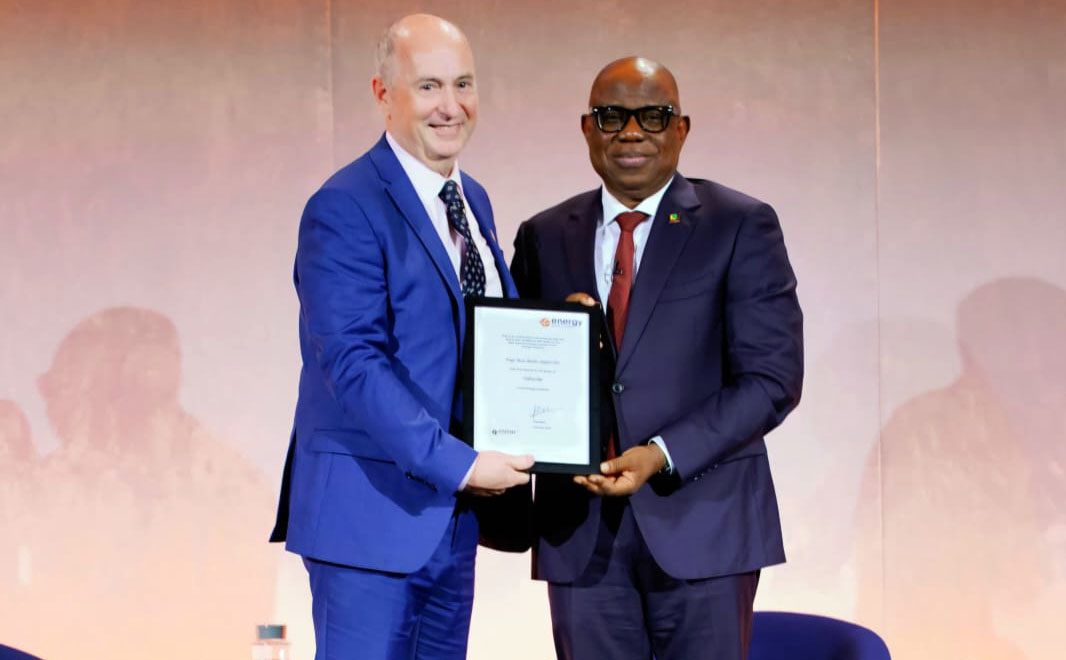
NNPC CEO Ojulari Receives Prestigious Energy Institute Fellowship in London
The Nigerian National Petroleum Company Limited (NNPC Ltd.) has earned international acclaim as its Group Chief Executive Officer, Engr. Bashir Bayo Ojulari, has been conferred with the Fellowship of the Energy Institute (FEI), United Kingdom — one of the highest honours in the global energy industry.
The Fellowship recognises senior energy leaders who have demonstrated sustained, high-impact contributions to the advancement of the energy sector. It was formally conferred on Ojulari during International Energy Week (IEW) in London, a leading platform for energy policy, finance, and industry leadership. (punchng.com)
The honour was presented by Andy Brown, President of the Energy Institute, who praised Ojulari’s transformative leadership of NNPC Ltd., highlighting his role in strengthening governance, embedding a performance-driven culture, and repositioning the company for long-term value creation.
Under his stewardship, NNPC Ltd. has implemented investor-focused reforms, enhanced operational excellence, and expanded strategic global partnerships, all contributing to increased confidence in Nigeria’s energy sector. The recognition reinforces NNPC’s ongoing transformation into a commercially driven, globally competitive, and transparent energy company.
READ ALSO:
- FCT Polls: CSO Situation Room Flags Late Voting, Vote Buying, Logistical Challenges
- ADC Defeats APC to Win First Polling Unit in FCT Area Council Election
- Trump Moves to Indefinitely Suspend Work Permits for Asylum Seekers
Significance for Nigeria and Africa
Experts note that the FEI Fellowship is not only a personal achievement for Ojulari but also a major institutional endorsement of NNPC Ltd.’s reform agenda. Being recognised at International Energy Week, which convenes policymakers, financiers, regulators, and industry leaders, positions the company at the centre of critical global energy discussions on sustainability, energy transition, and capital formation.
The award also signals growing international confidence in NNPC Ltd. and highlights Nigeria’s strategic role in Africa’s energy security and global energy transition ambitions. (vanguardngr.com)
Ojulari’s Leadership Achievements
Since assuming office, Engr. Ojulari has overseen multiple strategic reforms at NNPC Ltd., including:
- Driving governance and operational reforms to boost accountability.
- Expanding strategic partnerships and investor-focused initiatives.
- Enhancing execution efficiency across the company’s subsidiaries.
- Positioning NNPC Ltd. as a credible, investment-ready energy enterprise.
These efforts have not only improved the company’s profitability and performance but also strengthened Nigeria’s energy security and market competitiveness. (punchng.com)
Ojulari described the Fellowship as a reflection of collective effort within NNPC and reiterated his commitment to sustainable value creation, global best practices, and energy sector innovation.
NNPC CEO Ojulari Receives Prestigious Energy Institute Fellowship in London
-

 Business1 day ago
Business1 day agoDangote Opens Refinery Investment to Nigerians With Public Share Sale Plans
-

 Politics3 days ago
Politics3 days agoPeter Obi Launches ‘Village Boys Movement’ to Rival Tinubu’s City Boys Ahead of 2027
-

 Education2 days ago
Education2 days agoUTME: JAMB Clarifies Position on Hijab During Biometric Capture
-

 Politics21 hours ago
Politics21 hours agoTinubu Hails Wike as APC Dominates 2026 FCT Area Council Elections
-

 Education3 days ago
Education3 days agoOgun Gov Rewards Nigeria’s Best Primary School Teacher with Car, Bungalow
-

 Entertainment3 days ago
Entertainment3 days agoTacha Condemns False Rape Allegations After Mirabel Admits Fabrication
-

 Politics2 days ago
Politics2 days agoADC Defeats APC to Win First Polling Unit in FCT Area Council Election
-

 Politics1 day ago
Politics1 day agoOpposition Weakens as Another Governor Eyes APC Move



